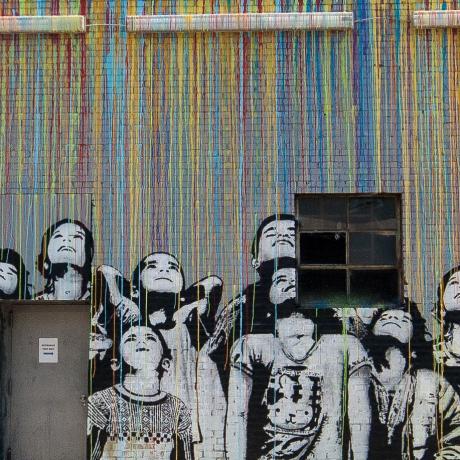
The following article is written is Dr. Paula Braveman.
The coronavirus is teaching us a global lesson about the cost of social inequality. Resource-poor countries are unable to compete with resource-rich countries to purchase desperately needed personal protective equipment that can determine life or death for medical personnel and others exposed to people infected with the SARS-CoV2 virus. Everywhere in camps for refugees and displaced persons, there is concern that the slightest exposure to SARS-CoV2 would produce an apocalypse, given the camps’ rampant crowding, malnutrition, chronic stress, and chronic diseases. In the United States, Blacks are dying from COVID-19 at rates far higher than Whites. For example, in Illinois, Blacks account for just 15 % of the state’s population but 43% of deaths attributed to COVID-19. Blacks make up only 13% of Michigan’s population but 40% of the deaths. In Louisiana, Blacks are a third of the state’s population but 70% of the deaths.
Understanding this disturbing data from the U.S. can shed light on likely patterns globally. The ethnic inequality in COVID-19 deaths in the U.S. mirrors profound and pervasive differences in Blacks’ experiences from cradle to grave as a result of racism. Racism includes not only overt interpersonal incidents of unfair treatment; it includes ambiguous incidents and pervasive worry or vigilance in anticipation of an incident. All of these experiences are stressful, and neuroscience has revealed that stress—particularly chronic stress—takes a toll on the body, producing inflammation and immune system dysfunction, which could affect one’s vulnerability to contracting and dying from Covid-19.
Racism also includes structural racism: unfair treatment deeply rooted in structures, policies, laws, institutions, and established practices. One example of structural racism is residential segregation, which systematically tracks U.S. Blacks into disadvantaged areas with many unhealthy exposures, including pollution, substandard housing, poverty, and daunting obstacles to escaping from poverty. These areas lack good jobs and adequate transportation to areas that have jobs. Liquor stores and fast-food outlets abound. Race-based policing results in high rates of incarceration, destructuring communities. All these disadvantages would heighten vulnerability to infection, illness, severe illness, and/or death, through known physiological mechanisms. Moreover, Blacks, being disproportionately poor due to centuries of disenfranchisement and exclusion, are more likely to be exposed to the virus at work and/or on crowded public transportation.
What are the global lessons? A chain is only as strong as its weakest link; no one escapes risk of infection as long as any social group is afflicted. Structural racism in the U.S. is paralleled globally by longstanding structural inequities between countries reflecting colonialism and neocolonialism, and by profound ethnic and socioeconomic divides within countries. Globally, the pandemic will persist as long as more vulnerable nations and populations within nations are marginalized and excluded from state-of-the-art approaches to containment. This pandemic is exacting a staggering toll in human and economic terms. But when it ends, the inequitably distributed costs of other diseases such as heart disease, diabetes, strokes, tuberculosis, and malaria, will still be with us, as they have been for a long time. These costs also reflect needless suffering, lost productivity, and premature death on a massive scale. And they also reflect longstanding structural inequities that follow deep ethnic, socioeconomic, and geopolitical fault lines. Will we learn the lesson and pursue an end not only to this pandemic but to the underlying social and economic inequalities within and between countries that are fanning its flames?
----
Paula Braveman (MD, MPH) is Director of the Center on Social Disparities in Health and Professor of Family and Community Medicine at the University of California, San Francisco (UCSF). Dr. Braveman has researched and published extensively on health equity and the social determinants of health, in the U.S. and internationally.
The author is responsible for the facts contained in the article and the opinions expressed therein, which are not necessarily those of UNESCO and do not commit the Organization.
